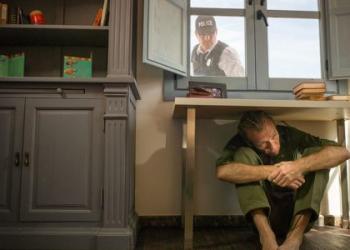
The Community Caretaking Doctrine does not apply to the entry or search of a residence
The “Community Caretaking Doctrine,” created to justify warrantless entries into impounded automobiles for a non-criminal investigative purpose, does not justify the warrantless entry into a residence or seizure of firearms therein.
Edward Caniglia—a resident of Rhode Island and petitioner in this civil suit—had an argument with his wife. During the argument, petitioner retrieved a handgun from their bedroom, put it on the table between them, and asked his wife to “shoot (him) now and get it over with.” Not finding this to be a reasonable solution to their argument, she simply left instead; spending the night in a hotel. But when she couldn’t reach him by phone the next morning, she called the police and asked them to do a welfare check. Respondents (Officer Robert F. Strom, et al) accompanied the wife back to the house and found petitioner alive and well, sitting on the porch. When questioned, petitioner denied that he was suicidal, but agreed to submit to a psychiatric evaluation at a hospital. However, he imposed one condition; i.e., that the officers promise him not to confiscate his firearms. Despite their promise, once petitioner was taken away by ambulance and after allegedly misinforming the wife about his wishes, the officers had her show them where petitioner kept his firearms, and confiscated them (two pistols). Released from the hospital and finding his guns gone, petitioner sued the officers in federal court, alleging that they violated his Fourth Amendment rights by entering his home without a warrant and seizing both him and his firearms. The district court granted summary judgment to respondents, dismissing the lawsuit. The First Circuit Court of Appeal affirmed, but solely on the ground that the decision to remove petitioner and his firearms from the premises was justified under the “community caretaking exception” to the search warrant requirement. (See Caniglia v. Strom (1st Cir. 2020) 953 F.3rd 112.) The United State Supreme Court granted certiorari.





